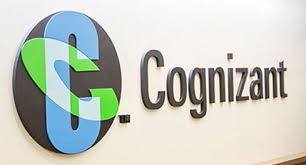Cooperating Cognizant COO Pays $50K to Settle SEC FCPA Action

In an interesting SEC FCPA settlement action, Sridhar Thiruvengadam, the former COO of Cognizant Technology, agreed to pay a $50K penalty for his role in the bribery scheme involving the payment of $2 million to a government official in India in exchange for the issuance of a planning permit needed for the construction of Cognizant’s new office location in Chennai, India.
Early this year, Cognizant earned a declination from DOJ and paid $25 million to the SEC. Cognizant’s former President and General Counsel were indicted for criminal FCPA violations. (Prior Posts Here, Here and Here). Thiruvengadam is cooperating in the criminal prosecution and will testify against his former C-Suite colleagues. The SEC took his cooperation into account and agreed to a reduced penalty.
The conduct of the Cognizant C-Suite was audacious in this case where a bold bribery plan was carried out and orchestrated by the President and General Counsel (along with Thiruvengadam and another individual.

Cognizant’s former president, Gordon Coburn, and chief legal officer, Steven Schwartz, were indicted on 12 counts, including FCPA conspiracy, three substantive FCPA counts, seven counts of falsifying books and records and one count of circumventing and failing to implement internal accounting controls.
According to the criminal indictment, Coburn and Schwartz authorized the illegal payment of $2 million to an Indian foreign government official to secure a necessary permit to open a new office campus. To conceal the plan, Coburn, Schwartz and two other officers (including Thiruvengadam) paid the $2 million bribe through a third-party construction firm and reimbursed the third-party through inflated construction invoices at the end of the project.
As described in the SEC’s settlement Order (Here), Cognizant’s Real Estate Officer learned that an Indian government official had made a $2 billion million bribe demand as a condition of issuing a planning permit. The Real Estate Officer passed the information to his supervisor, Thiruvengadam.
On April 21 and 21, 2014, the President, GC, Real Estate Officer and Thiruvengadam participated in video conference calls in which the Real Estate Officer outlined the demand for a bribe and sought guidance from the President and General Counsel. Real Estate Officer suggested the payment could be made by the Indian construction firm and then reimbursed through sham change orders. The General Counsel approved the method of reimbursement and the CEO authorized the bribe payment and suggested methods for disguising the illegal payment. Thiruvengadam did not object to the plan.
The President then directed his subordinates to withhold payments to the Indian construction firm if it did not agree to make the bribery payment. The Indian construction firm eventually agreed to make the bribery payment. Cognizant received the planning permit in November 2014.

Cognizant concealed the $2.5 million reimbursement to the construction firm through a number of falsified contract change orders. The falsified invoices and supporting documentation were forwarded to the President for approval. Thiruvengadam received a copy of the materials. The President approved the payments.
Thiruvengadam helped conceal the reimbursement scheme by executing false management representation sub-certifications in connection with Cognizant’s audits. His false representation specifically certified that he was not aware of any misconduct involving senior management.















